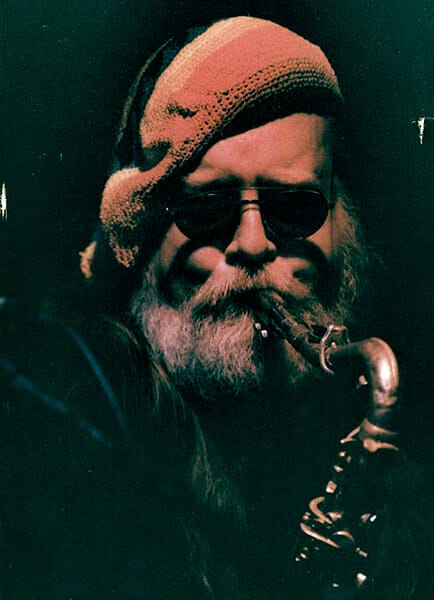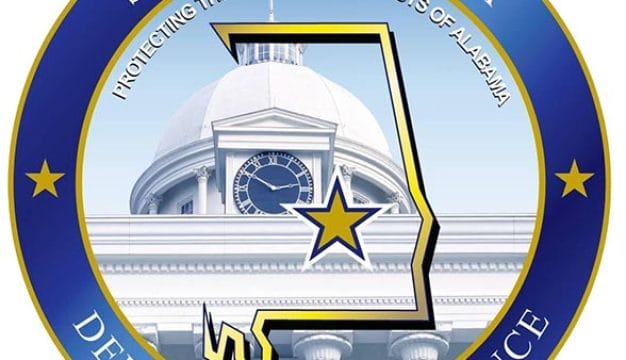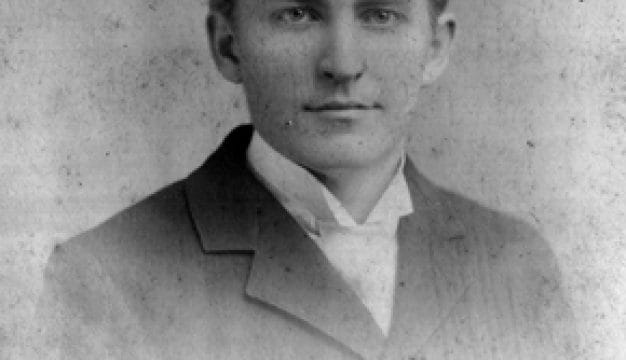Jay Carrington Scott
 Jay Scott
Jay Carrington Scott (1953-2009) was a notable saxophone player who learned his trade in the music clubs of Dothan, Houston County, and the Wiregrass region. He later traveled the country, playing often in Las Vegas, and recorded with many notable groups and artists of the late 1970s and early 1980s. His solos were featured on million-selling records by the southern rock group Lynyrd Skynyrd and vocalists Alicia Bridges, Melissa Manchester, and Dionne Warwick. In addition to his skills with the saxophone, Scott was also a gifted soul singer and a multi-talented instrumentalist who played the flute, congas, and piano.
Jay Scott
Jay Carrington Scott (1953-2009) was a notable saxophone player who learned his trade in the music clubs of Dothan, Houston County, and the Wiregrass region. He later traveled the country, playing often in Las Vegas, and recorded with many notable groups and artists of the late 1970s and early 1980s. His solos were featured on million-selling records by the southern rock group Lynyrd Skynyrd and vocalists Alicia Bridges, Melissa Manchester, and Dionne Warwick. In addition to his skills with the saxophone, Scott was also a gifted soul singer and a multi-talented instrumentalist who played the flute, congas, and piano.
Scott was born on March 13, 1952, in Durham, North Carolina, to Jesse Paul Scott of Cedartown or Rome, Georgia, (sources differ) and Margery Carrington Scott of Blackpool, England; he had two sisters. His parents married in 1944 while his father was serving the U.S. Army in England during World War II. By 1958, his father had moved the family to East Point, Georgia, where he worked for the government by some accounts and played the upright bass in local venues. According to family sources, his father focused on young Scott’s innate musical talent. J. Paul bought him a Music Minus One program for the saxophone, and at nine years of age, he started playing the instrument.
Scott’s father relocated the family to St. Thomas, Virgin Islands, a U.S. territory, for his government work. Scott became captivated by the music, beauty, and culture of the Caribbean. Family members have commented that his being one of the only white children in this environment provided him with a new perspective. Scott’s musical abilities thrived as he played with different musicians. All Saints, the private Anglican school Scott attended, did not offer a full marching band for students, but he was not deterred from playing in a full band. During one annual Carnival festival, many of the other school bands were featured in the annual parade, and he joined three other bands that day.
In 1968, the family moved to Dothan, where Scott hoped to join the Dothan High School band but was denied because of his long hair. Unfazed, Scott found other avenues for musical expression, making connections with some of the local young African American musicians. They played various clubs in the Bottom, the predominantly African American area of Dothan. They mainly performed at Buier’s Lounge, where Scott became recognized as the “blue-eyed soul brother,” incorporating funk, soul, rhythm, blues, and jazz elements into his musical repertoire. Although Scott struggled throughout his life with Bell’s palsy, which left muscles in his face weakened, he learned how to play on one side of his mouth and later learned to play two saxophones simultaneously by intentionally isolating his facial muscles.
After graduating from high school, Scott played saxophone with Mitch Goodson of MG and the K-PERS and regularly performed in Panama City Beach, Florida, and environs. It was there that vocalist Sonny Turner, who had recently left the vocal group The Platters, spotted him. Turner, who was starting his solo career around 1970, quickly hired Scott to go on tour, and they traveled around the country. The band played in Las Vegas often, and Scott was hired to be a member in the house band for famous comedians like Rodney Dangerfield and Rich Little, playing the “Strip.” Scott returned to Dothan to take a break from the road in the mid-1970s, and his sister Laura introduced him to the club scene there. He played a few songs with one club’s house band, Satyr, and was again quickly hired. He found steady work with Satyr for several years.
In 1977, Scott decided to move to Atlanta to find studio session work, leading to performances on numerous hit records. His saxophone work was featured by the southern rock group Lynyrd Skynyrd on “What’s Your Name,” the opening track on their 1977 Billboard top-selling album Street Survivors, produced by the noted Tom Dowd. (Several tracks were recorded at Muscle Shoals Sound Studio in Sheffield, Colbert County.) Later released as a single, “What’s Your Name” was a Billboard Top Single Pick in the Pop category and reached number 13 on Billboard’s Hot 100. In 1978, Scott was tapped by producer Steve Buckingham for the 1978 single, “I Love the Nightlife,” a disco song by Alicia Bridges. The song became a worldwide hit, reaching number 2 on Billboard’s Top Dance Club Songs, number 5 on Billboard’s Hot 100, and the number 1 Adult Contemporary song on Canada’s RPM music publication and helped launch Buckingham’s multiple Grammy Award-winning career. Scott later performed with Bridges’ band at the Bottom Line, the famous East Village club in New York City. “I Love the Nightlife” was nominated for a 1978 Grammy Award for best song, which Bridges performed at the ceremony to a cheering audience. Following Scott’s success with Bridges and Buckingham, he soon garnered the attention of other performers. He recorded the featured sax solo on Melissa Manchester’s “Whenever I Call You Friend” (co-written with Kenny Loggins) and appeared on her self-titled 1979 album produced by Buckingham and on Dionne Warwick’s “Easy Love” on her 1980 album No Night So Long, also produced by Buckingham.
In the 1980s, Scott moved permanently to Panama City Beach and continued to play for more than two decades along the Emerald Coast, as the coastal region is often known. He also began teaching music lessons as a volunteer at the Martin Luther King Center in Panama City. He married a local musician, guitarist Patricia Elaine Cowin, in 1993 and continued his musical endeavors.
Scott died suddenly of a heart attack on September 3, 2009, at the age of 57. He had been plagued by various health problems and had been severely injured in a motorcycle accident that required a hip replacement. He is memorialized on downtown Dothan’s Boogie Woogie music mural, and his performances have been heard by millions of music fans worldwide in several era-defining songs.



